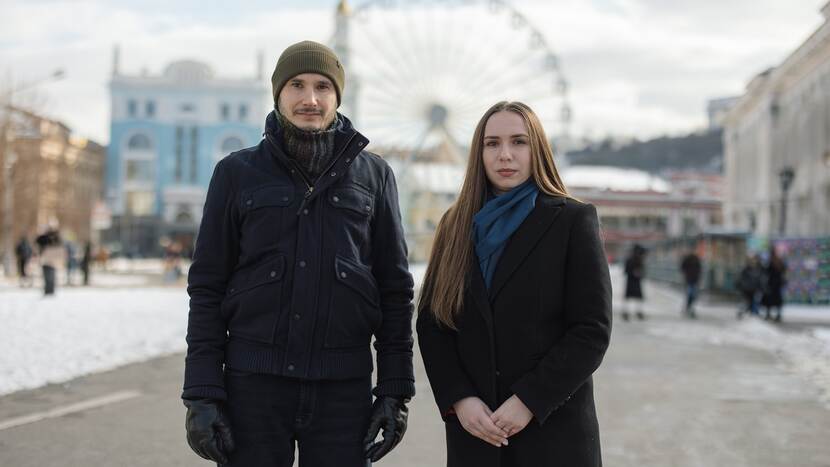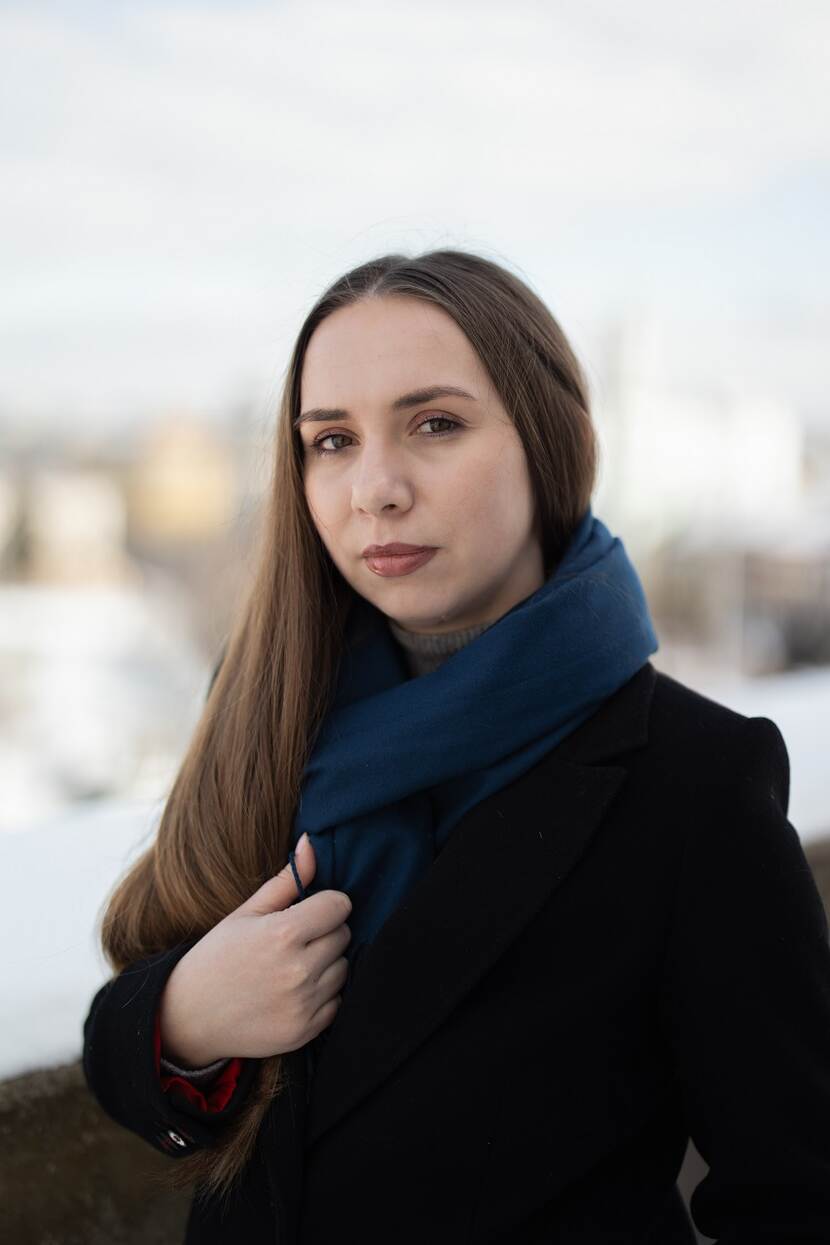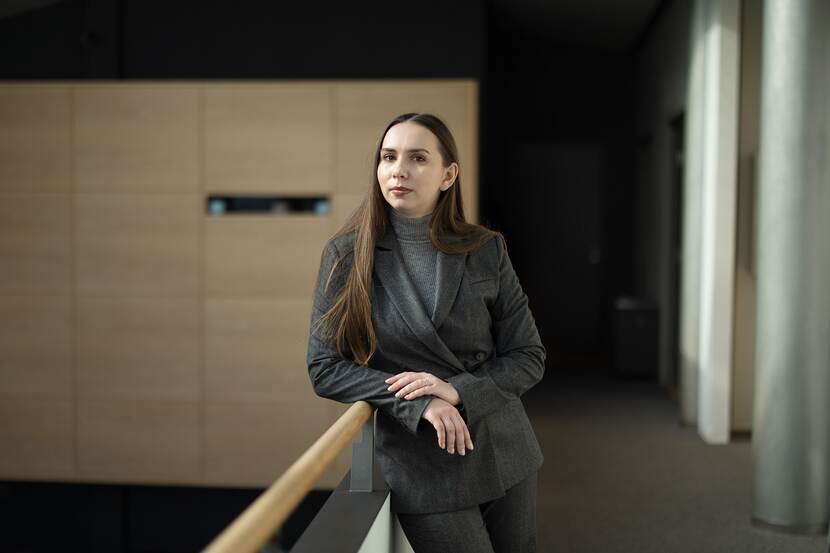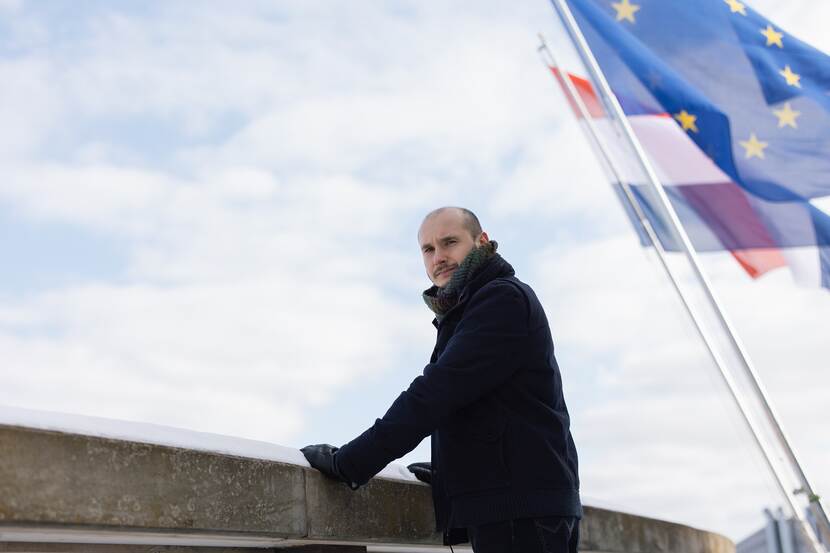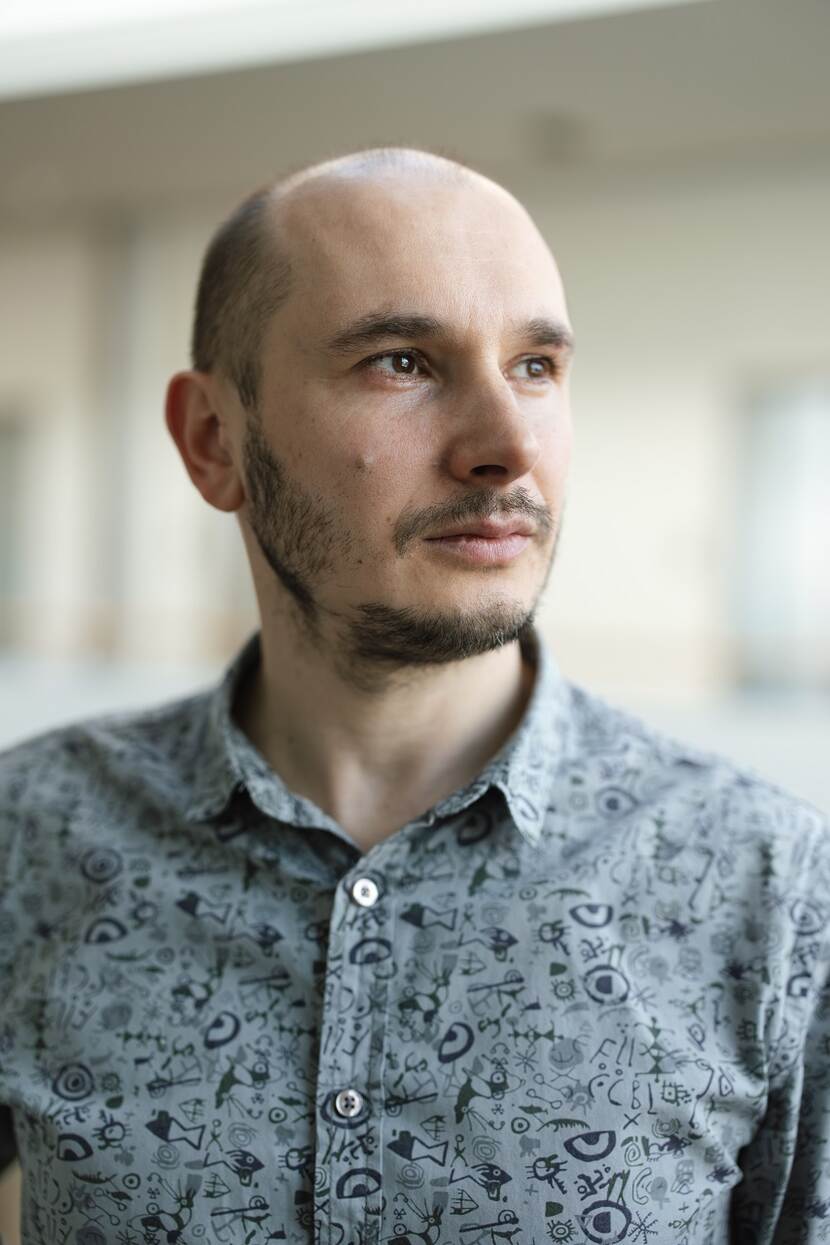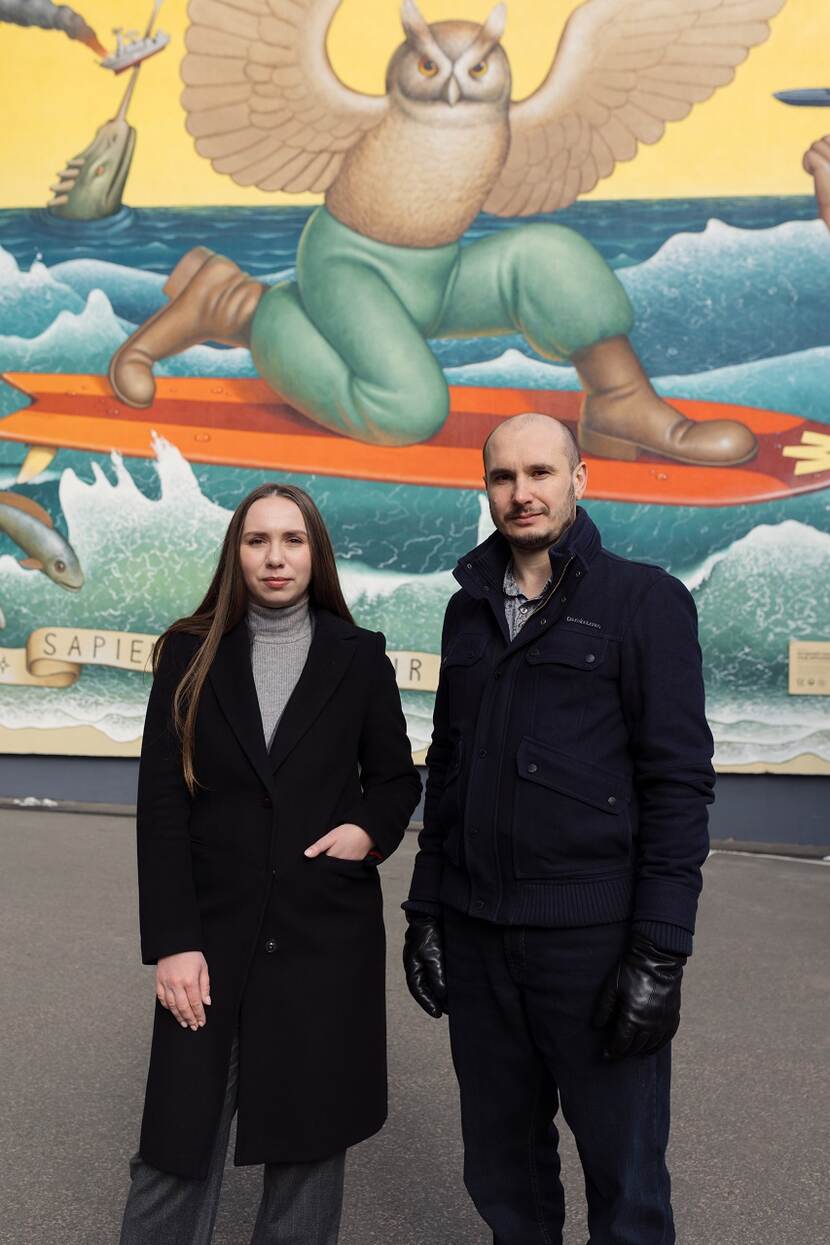Local staff members of Dutch embassy in Kyiv share experiences
Weblogs
The war in Ukraine enters its fourth year today. Yuliia and Viktor, local staff members of the Embassy of the Netherlands in Kyiv, share their experiences and challenges on living and working in their home country that is still at war.
Living in Kyiv: divided into two parts
Yuliia: ‘Living in Kyiv, Ukraine in war time is divided in two very different parts. At night and in the morning we can hear the drones and missiles flying. We try to sleep but that is very difficult. And we often need to go the basement of our building or the bomb shelter with our emergency kit when the air alert goes off. One month ago our neighborhood was even hit by a ballistic attack, that I could hear and feel in my core, even from the bathroom of my apartment.
We are constantly checking Telegram channels to find out the latest information, and to make sure our loved ones are safe. My father has been a firefighter for 25 years now and in these times he is constantly doing very harsh and dangerous work and finds himself in difficult situations more than he wants. I am very proud of him for doing this work, but it also worries me.
It's honestly very difficult to live in these circumstances and to cope with everything that is going on right now and still have the energy to go on, but to know that your country is fighting for your freedom, brings me some courage to live and work here. Seeing the resilience of Ukrainian people and soldiers also inspires me.’
Working for the Embassy of the Netherlands in Kyiv
‘A whole other part of my life is working’, says Yuliia. ‘I have been working as a project administrator for the embassy of the Netherlands in Kyiv. I am dealing with the financial administrative side of our projects. We cooperate with NGO’s and other partners on topics like cohesion in war affected areas. I just organized a visit of our ambassador and the head of the political department to Dnipro.
They met with veterans, internally displaced persons (idp’s) and people with disabilities who showed their utmost appreciation for the meeting and the cooperation with the embassy. We try to help veteran soldiers who are struggling with the transfer of a military life to a “normal” life. There is also a project on accountability that I work for.
These are all very serious issues that we as a mission help addressing. I feel that our priorities are perfectly synchronized with the Ukrainian ones and that our work is needed in a war time like this. Helping people in areas affected by the war motivates and inspires me to do everything I can do for them and for my country.’
‘Working in a country that is at war does change everything you were used to and affects your mental and physical health and your stamina and productivity. You have to constantly adjust to air alerts, electricity failures etc. Because of this it is very hard to plan a day’s work or further ahead.
Despite the difficulties we face as a team at the embassy we still have a great collaboration. We try to support each other whenever it’s needed, when someone is ill or needs help or just someone to open up to. No matter what is going on, we are always ready to help each other. We discuss what is going on in our country, we talk about the political situations and about the attacks that are always threatening us.’
Viktor: ‘Staying in different locations requires flexibility of me and my family’
Viktor: ‘Living in Ukraine is indeed quite difficult and demanding now. Sometimes me and my family live in the apartment of our parents in law, where it’s very dangerous and we can hear the city’s air defense constantly working through the night. My wife and small son also sometimes have to be without me and live in a different place outside the city, where it is less dangerous right now. But on the downside: it is more difficult for me to go to work from there and vice versa.
At the moment all the air alarms stop, usually in the morning, everybody tries to travel to work or family at the same time. This causes heavy traffic jams on the main roads and overpacked metros and buses. This and the fact I have to navigate through a lot of old military objects that are still being targeted sometimes, can make that it takes me two hours to get to the embassy to work. So I always carry a big backpack with me to work so that I can sleep in the city if needed.
Staying in different locations requires flexibility of me and my family. My parents are retired and also live in the city and I have to take care of them as well. It is sometimes very hard to remain flexible and have energy for everything I need to do, because I feel tired in the evenings after returning home.’
‘This job, even though it is very demanding, still makes me feel good’
Viktor: ‘I am working at the general affairs department of the embassy. That means for example we are: taking care of the residency, making payments, organizing and looking after visiting and outgoing delegations, making sure of transportation and arranging other events on behalf of our embassy.
This job that I have been doing since 2014, still makes me feel good; even though it is very demanding. I like being part of the local management staff and to be able to give my input to the management processes about the local markets and business. I try to make sure we find good local suppliers and responsible companies to provide good service for the Embassy and our projects.’
Working can be quite difficult sometimes. We can only prioritize our tasks for a day or for a week and even that proves to be a challenge, because of the air alerts etc, which of course you have to respond to. After an alert I need a moment to get myself together and refocus. I will say to myself what tasks I can still do, which people I can still meet or what meeting I have to move to tomorrow, if possible. This requires constant alertness and shifting perspectives. Normal time management skills do not apply in these exceptional situations.
At the embassy we work together in an open office space. We try as a team to share our experiences with each other and to spend time together just drinking tea or coffee and talk about everyday life. For some, it helps to pray to God, others benefit from yoga or talking to a psychologist to cope with everything the war causes. For me it also helps to invest time and give attention to my wife and son, he is one of the main reasons to live for and to hope for a better future.
At the entrance of the embassy building we have a table with all our programmes and projects that we are working on on behalf of the Dutch government. Looking at this table makes me proud to be a part of this team; working for the Ukraine and a better future. The Netherlands provides a lot of military and non-military support and gives humanitarian and financial support, critical to our country, a foundation for building a better economy and the wellbeing of many Ukrainian people.’
Dreaming of a better future
Viktor: ‘Despite the fact that I am having trouble planning my life further then the next three months or so, I still have a dream that I think about sometimes. I wish that I am someday able to create a big garden for me and my family to be together.’
Yuliia: ‘I am having a hard time dreaming of something positive. But I am working on my PhD on international economy so I am looking forward to successfully finishing that.’
All of the photos in this article are made by Tetiana Bulhakova.
